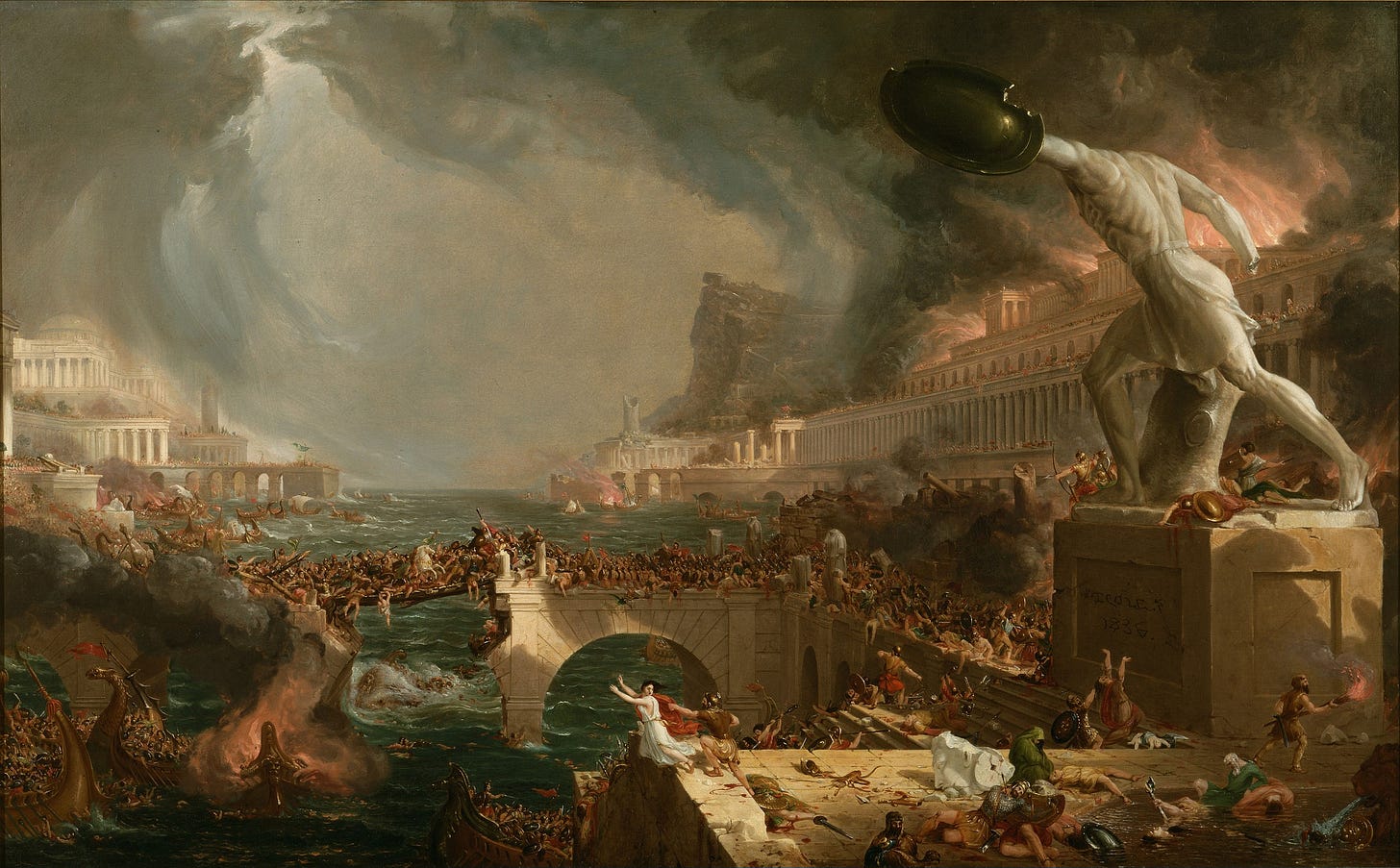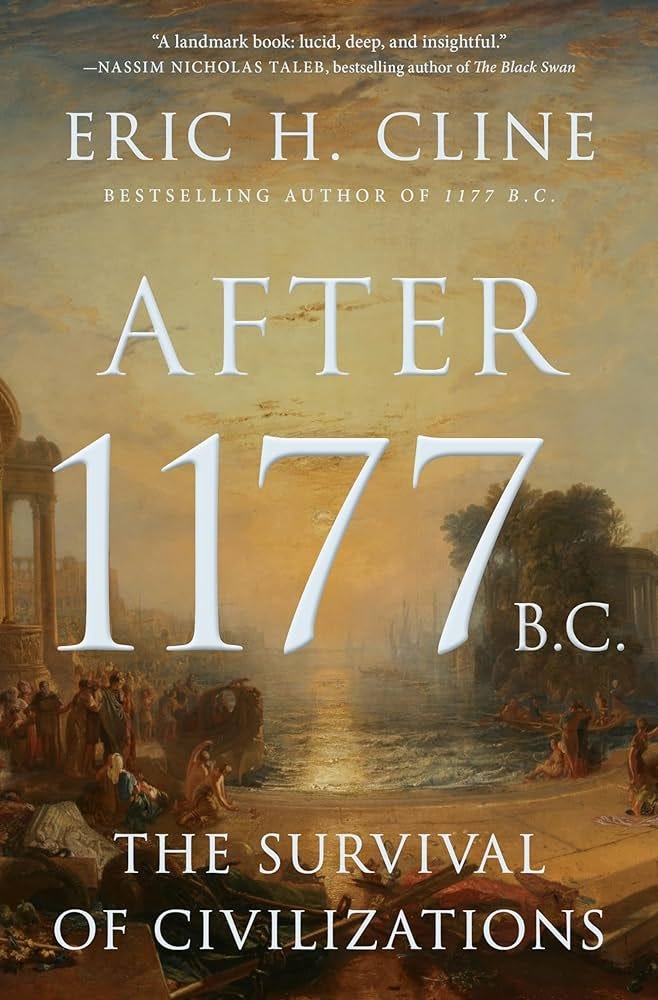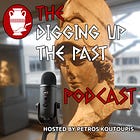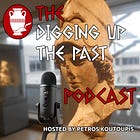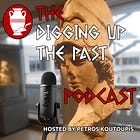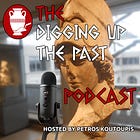Featured Episode - Hammurabi's Shoes, Just kidding! We Talk After 1177 BC
Issue 53
In This Episode
We sit down with Dr. Eric H. Cline to discuss his latest publication, After 1177 B.C.: The survival of Civilizations. He is a historian, archaeologist, professor of ancient history and archaeology at George Washington University at Washington DC. Author of numerous top selling books in the category of ancient history which includes 1177 B.C.: The Year Civilization Collapsed and more. We also talk about the collapse of the Bronze Age, the Sea Peoples, excavating Megiddo and so much more.
You can listen to this episode on:
To watch the full video of Episode 22 with bonus materials, subscribe to the Ancient Origins Premium site or to the Ancient Origins UNLEASHED Substack.
Glossary
Ahhiyawa - The Hittite rendering of Homer’s Achaeans (i.e. the Mycenaean Greeks).
Archaic Greece - A period in Greece starting at ca. 800 BCE and ending ca. 480 BCE.
Bronze Age - Defines a historic period dated to approximately between 3300 BCE and 1200 BC. It is characterized by the use of bronze, the presence of writing in some areas, and other early features of urban civilization.
Etruscans - An ancient civilization inhabiting ancient Etruria as early as 900 BCE. They were highly cultured and spoke a unique Etruscan language still largely undeciphered today. The Etruscans were competing with the Greeks and later Carthaginians for control over the Tyrrhenian region and until they were eventually absorbed into the Roman empire.
Hammurabi - (c. 1810 – c. 1750 BCE) The sixth Amorite king of the Old Babylonian Empire, best known for issuing the Code of Hammurabi, claimed to have been received from Shamash, the Babylonian god of justice.
Herodotus - (c. 484 – c. 425 BCE) An ancient Greek historian and geographer.
Hesiod - An ancient Greek poet believed to have been active between 750 and 650 BCE.
Hittite - An ancient civilization and empire that controlled most of the Anatolian mainland.
Homer - An ancient Greek poet, living in the late 8th or early 7th centuries BCE. He is credited for authoring both the Iliad and the Odyssey.
James Henry Breasted - (1865 – 1935) An American archaeologist, Egyptologist, and historian.
Late Bronze Age - A historical period defining the end of the Bronze Age in the Eastern Mediterranean that began at c. 1500 BCE and ended c. 1200 BCE.
Linear B - An adaptation from the Minoan Linear A, it is made up of hundreds of signs that represent syllabic, ideographic and semantic values that represent an ancient dialect of the Greek language.
Mesopotamia - A region of Western Asia situated between the Tigris and Euphrates rivers in what is today Iraq.
Minoan - An ancient civilization that inhabited (and dominated) the Aegean during the Bronze Age and just before the Mycenaean Greeks. Early archaeological evidence identifies the civilization as early as 3500 BCE.
Mycenaean - A phase or period of the Bronze Age Greece, spanning from approximately 1600-1100 BCE.
Naram-Sin - Grandson of King Sargon [the Great], he was ruler of the Akkadian Empire, reigning c. 2254–2218 BC.
Neo-Assyrian - An ancient Mesopotamian civilization (ca. 911 - 609 BCE) originating from northern Mesopotamia and extending their empire across the entire Near East.
Ramesses III - The second Egyptian Pharaoh of the 20th Dynasty. Reigned from approximately 1186 - 1155 BCE.
Sargon [the Great] - The first ruler of the Akkadian Empire, known for his conquests of the Sumerian city-states between the 24th to 23rd centuries BCE.
Sea Peoples - A confederation of seafarers that migrated East toward Anatolia, the Levant and Egypt during the end of the Late Bronze Age, some of which pillaged and plundered whole cities along the way.
Thucydides - (c. 460 – c. 400 BCE) An Athenian historian and general.
Recommended Books
After 1177 B.C.: The Survival of Civilizations
By Eric H. Cline
At the end of the acclaimed history 1177 B.C., many of the Late Bronze Age civilizations of the Aegean and Eastern Mediterranean lay in ruins, undone by invasion, revolt, natural disasters, famine, and the demise of international trade. An interconnected world that had boasted major empires and societies, relative peace, robust commerce, and monumental architecture was lost and the so-called First Dark Age had begun. Now, in After 1177 B.C., Eric Cline tells the compelling story of what happened next, over four centuries, across the Aegean and Eastern Mediterranean world. It is a story of resilience, transformation, and success, as well as failures, in an age of chaos and reconfiguration.
After 1177 B.C. tells how the collapse of powerful Late Bronze Age civilizations created new circumstances to which people and societies had to adapt. Those that failed to adjust disappeared from the world stage, while others transformed themselves, resulting in a new world order that included Phoenicians, Philistines, Israelites, Neo-Hittites, Neo-Assyrians, and Neo-Babylonians. Taking the story up to the resurgence of Greece marked by the first Olympic Games in 776 B.C., the book also describes how world-changing innovations such as the use of iron and the alphabet emerged amid the chaos.
Order the book on Amazon.
Recommended Articles
Book Review - 1177 B.C.: The Year Civilization Collapsed by Eric H. Cline
Book Review - Digging Up Armageddon: The Search for the Lost City of Solomon by Eric H. Cline
Book Review - The Trojan War: A Very Short Introduction by Eric H. Cline



